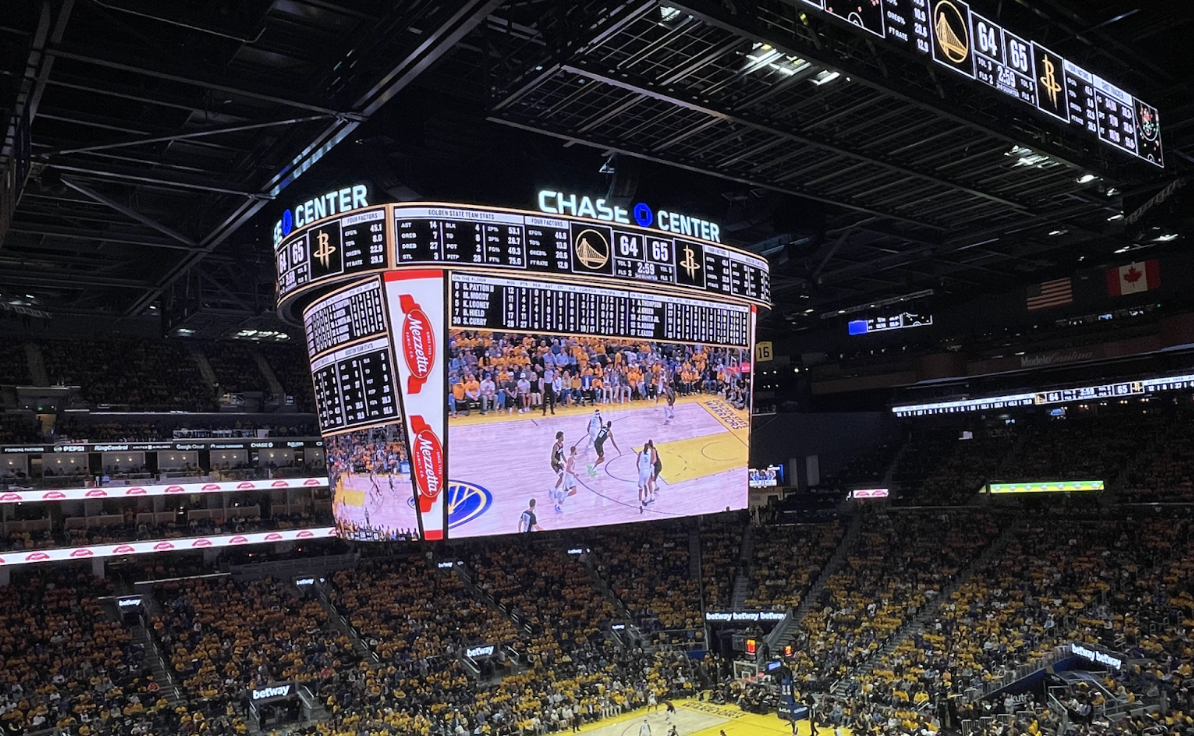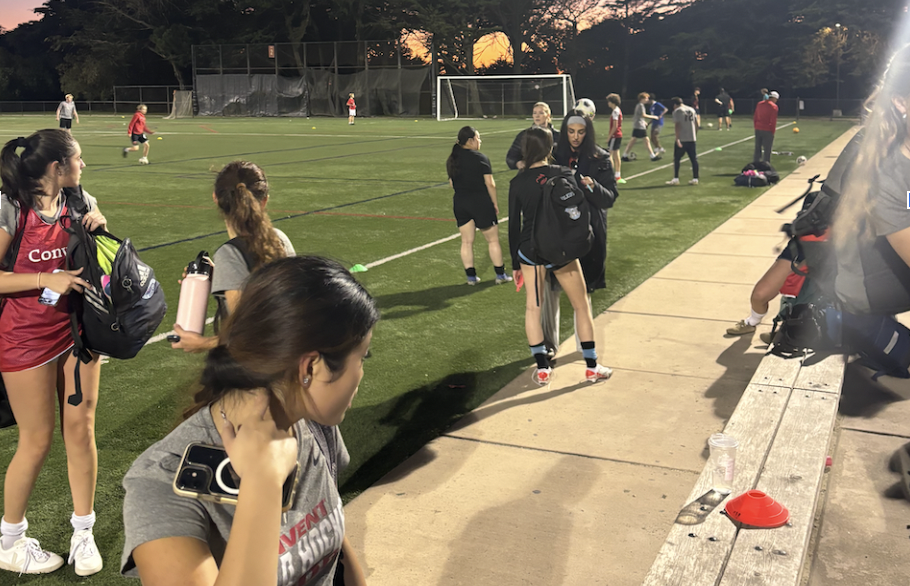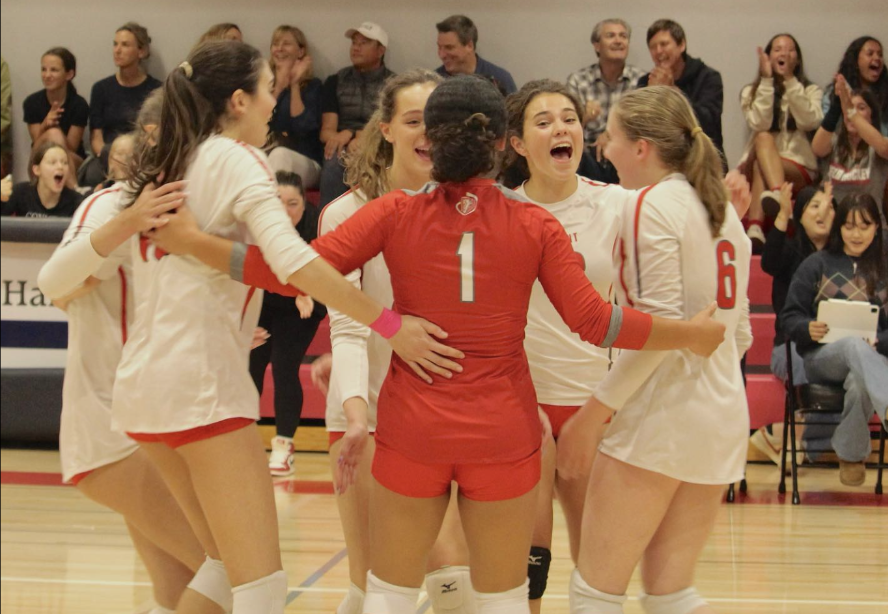Student athletes who are getting fewer hours of sleep due to demanding academic loads and athletics are combating lethargy by turning to gummy-type energy supplements to get them through daily practices and games.
“I started taking [supplements] when I got larger amounts of homework,” Izzie Panasci, who plays soccer, basketball and runs cross-country, said. “They allowed me to focus on the field a lot better and gave me more stamina when I was lacking sleep.”
Sports beverage and food companies have added energy supplements to their lists of products geared to help athletes reach peak performance levels. Popular choices among students are Gatorade’s Energy Chews and Carb Energy Chews, Clif Bar and Company’s Shot Bloks and Gu Chomps.
“[Energy chews] are appropriate in small amounts when running long distance races or participating in physical activity for long periods of time, but I would not recommend them to replace sleep,” Jerusalem Makonnen, RN said. “Your body needs to get a certain amount of sleep, and no energy supplement can make up for that.”
Most teens need nine hours of sleep each night to reach their full potential throughout the day, according to the Mayo Clinic.
The supplements contain concentrated amounts of carbohydrates, electrolytes, Vitamin B, caffeine and frequently have high fructose corn syrup or cane sugar as their main ingredients. Despite the large amounts of sugar added to the chews, used partly to enhance the flavor, taste still deters some athletes from using the product.
“They taste disgusting,” Al- anna Hu, who rows for Pacific Rowing team said. “The few benefits they give me aren’t worth their terrible flavor.”
Energy chews can cause jitteriness followed by significant drops in energy levels once the consumer has peaked from her sugar and or caffeine high, due to the body’s need to compensate for the amount of sugar and caffeine ingested, according to Makonnen.
“I had to stop eating them be- fore games because I would get extremely hyper and crash with- in an hour,” varsity soccer co- captain Sara Svartvosmo said.
The chews are advertised as giving consumers temporary amounts of energy to carry them through physically demanding and exerting activities, but they do not to replace sleep.
“I would not recommend using them over long periods of time, they are appropriate every once in awhile,” Makonnen said. “I think they are appropriate, but using them regularly can be detrimental over time.”
Student athletes who are getting fewer hours of sleep due to demanding academic loads and athletics are combating lethargy by turning to gummy-type energy supplements to get them through daily practices and games.
“I started taking [supplements] when I got larger amounts of homework,” Izzie Panasci, who plays soccer, basketball and runs cross-country, said. “They allowed me to focus on the field a lot better and gave me more stamina when I was lacking sleep.”
Sports beverage and food companies have added energy supplements to their lists of products geared to help athletes reach peak performance levels. Popular choices among students are Gatorade’s Energy Chews and Carb Energy Chews, Clif Bar and Company’s Shot Bloks and Gu Chomps.
“[Energy chews] are appropriate in small amounts when running long distance races or participating in physical activity for long periods of time, but I would not recommend them to replace sleep,” Jerusalem Makonnen, RN said. “Your body needs to get a certain amount of sleep, and no energy supplement can make up for that.”
Most teens need nine hours of sleep each night to reach their full potential throughout the day, according to the Mayo Clinic.
The supplements contain concentrated amounts of carbohydrates, electrolytes, Vitamin B, caffeine and frequently have high fructose corn syrup or cane sugar as their main ingredients. Despite the large amounts of sugar added to the chews, used partly to enhance the flavor, taste still deters some athletes from using the product.
“They taste disgusting,” Al- anna Hu, who rows for Pacific Rowing team said. “The few benefits they give me aren’t worth their terrible flavor.”
Energy chews can cause jitteriness followed by significant drops in energy levels once the consumer has peaked from her sugar and or caffeine high, due to the body’s need to compensate for the amount of sugar and caffeine ingested, according to Makonnen.
“I had to stop eating them be- fore games because I would get extremely hyper and crash with- in an hour,” varsity soccer co- captain Sara Svartvosmo said.
The chews are advertised as giving consumers temporary amounts of energy to carry them through physically demanding and exerting activities, but they do not to replace sleep.
“I would not recommend using them over long periods of time, they are appropriate every once in awhile,” Makonnen said. “I think they are appropriate, but using them regularly can be detrimental over time.”








